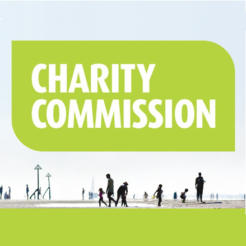A Jewish charity has recovered a £500,000 loan its subsidiary company, after the regulator launched an investigation because it was concerned about the low level of charitable expenditure.
Raleigh Ltd was founded in 2006 to “advance religion in accordance with the orthodox Jewish faith”.
The Charity Commission opened a statutory inquiry in October 2011 to look into the administration, governance and management of the charity by trustees, conflicts of interest and the low level of charitable expenditure, which over five years amounted to less than 20 per cent of its income.
Between 2009 and 2013 the charity has received £924,151 but only spent £172,333 on grants to further its charitable objectives.
As a result of the inquiry two independent trustees have been appointed.
The inquiry found that in the financial year ending March 2009 the charity loaned a subsidiary company £500,000 over a three-year period to enable the company to make an investment to benefit the charity.
This subsidiary company had already entered into an agreement with an individual to pay them £500,000 in return for a quarter of the interest from shares held by the individual in a private company. If the distributions came to less than £500,000 then the individual was required to pay the shortfall to the company so that it could repay the charity.
The individual had been providing informal advice to the charity for some time and had also entered into a formal agreement with trustees and other family members regarding personal financial arrangement. The inquiry report criticises the charity for considering the potential for a conflict of interest.
In April 2012 the charity’s adviser told the Commission that it had agreed a repayment plan for £500,000 with the individual by July. In September the Commission was informed of a second agreement had been reached to that would see the individual make repayments of £75,000 per month until the amount had been repaid.
The Commission used its powers to check with the bank and discovered no evidence of repayments and wrote to the charity in early 2013 to inform it of its concerns. In 2013 the charity applied to the Commission to enable another company, which two trustees had an interest in, to take on the individual’s debt. The Commission approved this and the money has now been repaid.
Now that the money has been repaid the Commission has closed the statutory inquiry. But the charity will be monitored and reassessed in nine to 12 months’ time.
Low level of charitable expenditure
It was the charity’s low expenditure on charitable activity that alerted the Commission to potential issues at the charity.
The inquiry report warns the trustees that 18.6 per cent of overall income spent on charitable activity is low and that income should be applied “within a reasonable period of receipt”.
The charity argues that it has a long-term strategy to grow its reserves and has amended its reserves policy.









